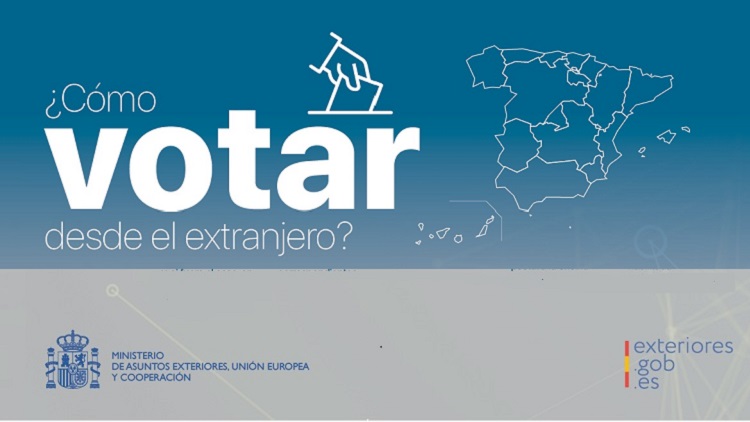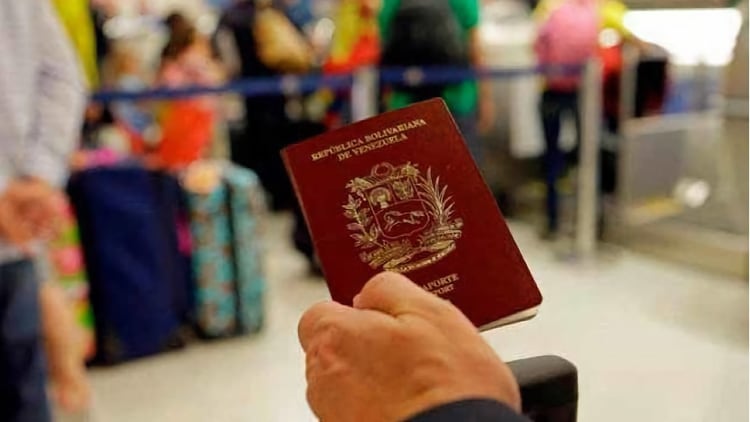Eduardo González
The Ministry of Foreign Affairs has already put in place the necessary procedures to facilitate the vote of Spanish citizens living abroad in the autonomic elections of next May 28, the first without “rogatory vote” since 2011.
Last October 2022, the law reforming the Organic Law of the General Electoral Regime (LOREG) to facilitate the vote of Spaniards living abroad officially came into force, which put an end to a system, that of the “rogatory vote”, whose application since January 2011 had resulted in a sharp drop in the participation of those registered in the Census of Absent Residents (CERA).
The system of the “rogatory vote” obliged Spaniards residing abroad to request or beg to vote in order to participate in the general, regional or European Parliament elections, complying with a series of very short deadlines both for the request of the electoral documentation and for the remission of the vote by mail or its deposit in the ballot box.
Such circumstances, together with the time required to collect and print the documentation to be sent, and the dependence on foreign postal services, made it difficult to comply with the deadlines set forth in the electoral regulations, and with it the exercise of this fundamental right for a very large number of people, largely because they did not receive the electoral documentation on time or because there were incidents in the subsequent sending of their votes by postal mail to the Consular Offices.
For that reason, in the 2011, 2015, 2016 and April 2019 general elections, less than 10 percent of voters requested or begged to vote as a result of the complexity of the procedure (with the exception of the November 2019 elections, in which voters who had requested the documentation in the April elections – 8.69 percent – did not need to reiterate their request, which, together with new requests, made it possible to reach a percentage of 10.61 percent). Apart from that, turnout levels were even lower, ranging between 4.73 and 6.8 percent in the 2011, 2015, 2016 and 2019 general elections, percentages that contrast sharply with the average turnout data prior to the approval of the 2011 reform, which ranged from 22.99 percent in 2000 to 31.88 percent in 2008.
As recalled last Tuesday by the Ministry of Foreign Affairs on the occasion of the presentation of the Consular Activity Balance 2022, one of the main tasks of consulates is to manage abroad the electoral processes called in Spain. The suppression of the “rogatory vote”, it continued, will facilitate and simplify the exercise of that right. “The Spaniards registered in the Electoral Census of Absent Residents (CERA) will now receive the documentation without the need to request it previously, they will be able to print the ballots at home and will have more days and places to cast their vote in the ballot box or send it by mail,” it added.
More specifically, from now on, voters will be able to send their vote by mail to the consulates more than twenty days before the celebration of the election day. In this case, voters abroad will be able to download the ballots by telematic means and send their vote by mail to the corresponding consulate from May 2 until May 23. “That is, they will be able to vote even before the beginning of the electoral campaign, which will take place on May 12, as long as there are no challenges to the candidacies, in which case the process will be delayed,” according to the specialized digital newspaper España Exterior.
On the other hand, and this is the main novelty, voters living abroad registered in municipalities of the autonomous communities of Aragón, Asturias, Baleares, Canarias, Cantabria, Castilla-La Mancha, Extremadura, Madrid, Comunidad Valenciana, Murcia, Navarra and La Rioja, as well as in the autonomous cities of Ceuta and Melilla, will receive the documentation to be able to vote ex officio, without the need of a previous request. As the Government reminded through the BOE, this reform of the Organic Law intends “to respond to the demands of the Spanish community abroad and to eliminate the requirement that Spaniards living abroad have to request or beg to vote, which will allow everyone to receive the documentation ex officio at home”.
The reform maintains the possibility of sending the postal vote by mail to the corresponding Consular Office (between May 2 and 23) in case the voter cannot go to vote in the office enabled for such purpose and includes an extension from three to seven days of the deadlines for the deposit of the vote in the ballot box in the enabled centers (in this case, from May 20 to 25). Precisely, the BOE published, last Tuesday, the resolution of the Undersecretary of Foreign Affairs by which the list of authorized centers abroad for the deposit of the vote in the ballot box in the autonomic elections of May 28th is determined.
In addition, the term for the opening of the votes cast from abroad is extended from three to five days, delaying in the same interval the term of the general scrutiny. With these changes, according to the aforementioned newspaper, “it would not be surprising that in these next elections there will be a significant increase in the turnout”.
The modification of the LOREG was approved by the Congress and the Senate last June 9 and September 21 from a bill presented, in February 2021, by the Socialist Group and the Confederal Parliamentary Group of Unidas Podemos-En Comú Podem-Galicia en Común. The rogatory vote was introduced in 2011 by the Government of the Socialist José Luis Rodríguez Zapatero with the support of PSOE, PP, CiU and PNV.







